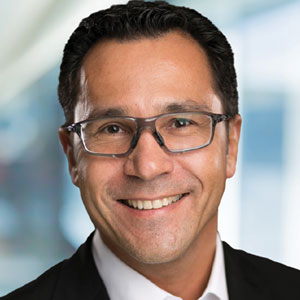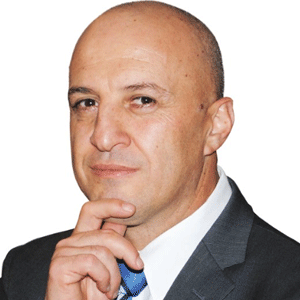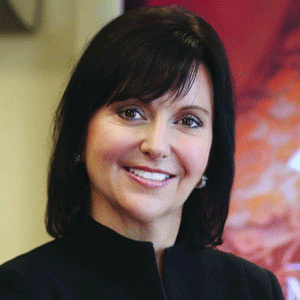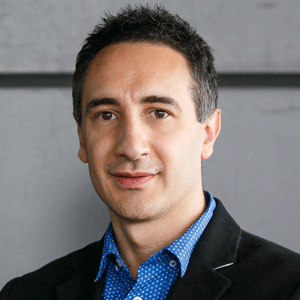THANK YOU FOR SUBSCRIBING

The Increasing Pace of Technology in the Hospitality Industry
John Bowen, Managing Director, MediaConcepts Pte Ltd


John Bowen, Managing Director, MediaConcepts Pte Ltd
I can’t think of a single industry sector that isn’t facing some kind of massive disruption due to technology, and the hospitality sector is no exception. Hoteliers are losing out to third party travel agents who are using technology to better target the customers and make selection and buying easier for the consumer. Hoteliers face a double issue - they are both cost constrained and also tend to be run by older management who do not understand how millennials use technology. Millennials are said to outspend the previously biggest group baby boomers in 2017
The hospitality industry is unique in that the essence of digital media is the same as the essence of hospitality; both are about conversation, engagement and shared experience.
Customers expect to interact with suppliers in the same way they interact in their social life – there is no longer a distinction, it’s a bleisure outlook. Instead of going to a website they may wish to make a booking through Facebook Messenger, Instagram, Alexa, Cortana, Skype, Google home or one of the many other interfaces they interact with. Recently Expedia has announced its own version of Skype and Cortana bots to go along with its Facebook messenger and Alexa bots.
“The hospitality industry is unique in that the essence of digital media is the same as the essence of hospitality; both are about conversation, engagement and shared experience”
Realising the huge financial upside of using technology to better understand and target its audience OTA’s are leading the technology charge. With their low infrastructure costs, high margins and massive user databases it is no wonder that OTA’s are leading the way. It is estimated that the top two OTA’s (Priceline and Expedia) spent over 6 billion dollars in advertising in 2015. By engaging with the customers early in the buying cycle their aim is to provide an all-inclusive environment for consumers to live in.
Expedia has also started to offer guests add-ons such as free WIFI, breakfast and even Check-in with electronic key access. From a consumer’s perspective this is very engaging but from a hotels perspective this should be very worrisome. Once someone else owns the relationship with the customer they start to have control over the hotels business.
So, what can the hoteliers hope to do to compete with this? In truth, they will need to take a pragmatic approach. Fight the battles they can win, and think very carefully the implications of what they give away. Booking.com just recently got hoteliers to sign up to their “genius” program, where hoteliers agreed to give booking.com genius members Priority Early Check-In and Priority Late Check-out and a 10% discount on selected rooms - something that they don’t offer to their own website guests.
Luckily hoteliers have got, and will always have, the physical property and control of their inventory therein. Hoteliers should start to look at 3 areas.
- How can they give the best experience on their website? Customers will probably look at the OTA site first, but most of the time they will visit the brand website to reaffirm that the hotel is in line with their personal image. This is the time you can convert the customer given the right incentives. This is not about price, but more about presenting them with the right personalised messages. During the Donald Trump campaign Jared Kushner ran a micro targeting exercise that increased sales of mechanise from $8,000 to $80,000 a day. A technique that worked so well he went on to use to personalise messages to audiences that helped to win the election. Geo targeting is something that can easily be implemented presenting the right offers to people. For example, a person living in Dubai probably doesn’t want to see a “Summer Sizzler” campaign when its 42 degrees outside, but may be interested in escaping from the heat and shopping in London. The two promotions could be the same offering.
- The second area to look at is dynamic packaging. Hoteliers can give people choice that is simply not available to the OTA’s, things like the choice of their room or preferential treatment. At a local level why not team up with local businesses or people to offer additional localised services. This could be local insider tours or experiences. Maybe grocery shopping for serviced apartments. Take a few tips from AirBnB who have a very global product at a very local level. Perhaps one easy area to start with would be good value upgrades for rooms. Hoteliers can free up their most popular inventory and provide a valuable reason for booking directly. Whatever you do don’t be afraid to shout about it.
- Finally, the Hoteliers should look at how they can differentiate once the guest is in the hotel. 46% of Millennials said checking-in/out using an application would motivate them to return. Front desk staff could encourage people to book direct next time if they booked through a third party and those who did booked could be welcomed and even given a welcome drink or some fruit in their room. These small acts of kindness make a big difference.
The other side of this of course not only increased revenue, but much lower operational costs.
Weekly Brief
I agree We use cookies on this website to enhance your user experience. By clicking any link on this page you are giving your consent for us to set cookies. More info
Read Also













